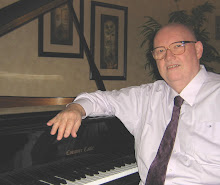
I REGRET THAT I did not meet Duke Ellington until a few years before his death in 1974. On behalf of a wealthy client, I hired Duke, and his entire orchestra, to play at a dinner party for just six people! (For that story see my blog: MONEY IS NOT WEALTH) I had tuned the piano for that party. After that, he occasionally called upon me when he was in the Philadelphia area. Although the relationship was short, it resulted in the largest tip I have ever received, and, the greatest compliment of my career.
DUKE ELLINGTONS'S WORK spanned half a century. He was one of the most influential artists and composers in the history of recorded music, earning more than a dozen Grammy Awards. He was also nominated for a Pulitzer Prize, received The Presidential Medal Of Freedom, made the cover of TIME magazine, and was the first African-American to appear by himself on a circulating U.S. coin. His Steinway piano now resides at The Smithsonian. His prolific compositions include popular, classical, and sacred music, as well as, film scores and show tunes. He is best remembered as one of the greatest figures in the history of jazz music. Largely due to his efforts, jazz was elevated from the honky tonks to an artistic level on par with classical music. There is hardly a serious singer or musician who has not recorded something The Duke wrote. He lived until age 75, long enough to see himself regarded as a musical icon.
DUKE ELLINGTON RESPECTED his musicians and treated them generously. From my observation, Duke's orchestra was a break even proposition. The bulk of his income came from music royalties. For instance, in the pre civil rights era, The Duke charted private railroad sleeping and dining cars to transport his musicians so they would not have to deal with segregated hotels. Once, after doing a $100.00 concert tuning, he paid me with ten one hundred bills. The $900.00 tip is the largest I have ever received and amounted to about two thousand dollars in todays money.
DUKE ELLINGTON PLAYED for many years at Harlem's famous Cotton Club, which ironically, was frequented by primarily white patrons. Perhaps this is why many people assume He grew up as a poor kid on the streets of New York. Actually he was the product of a middle class upbringing in Washington D.C. His parents saw to it that he was both well educated and well mannered. He received piano lessons and was taught by his mother to live elegantly. His childhood friends took note of his dignity, grace, and dapper dress. Feeling he had the bearing of a young nobleman they nicnamed Edward Kennedy Ellington "The Duke." I experienced his royal manners firsthand after tuning the piano for one of his college concerts. The rented grand piano arrived early in the afternoon. Later I showed up and tuned thru it twice in preparation for the evening concert. When I presented my bill to the student who was acting as stage manager, he insisted I stay until The Duke arrived and approved my work. I agreed to wait, but, I would be charging heavy duty coin for every half hour. Several hours later The Duke arrived and the hapless stage manager requested that he try the piano immediately, because, he had kept me waiting on the clock. The Duke glanced over at me and politely informed the student that he had no need to try the piano. "If John tuned it, I'm sure it's fine." I consider that my greatest compliment.

